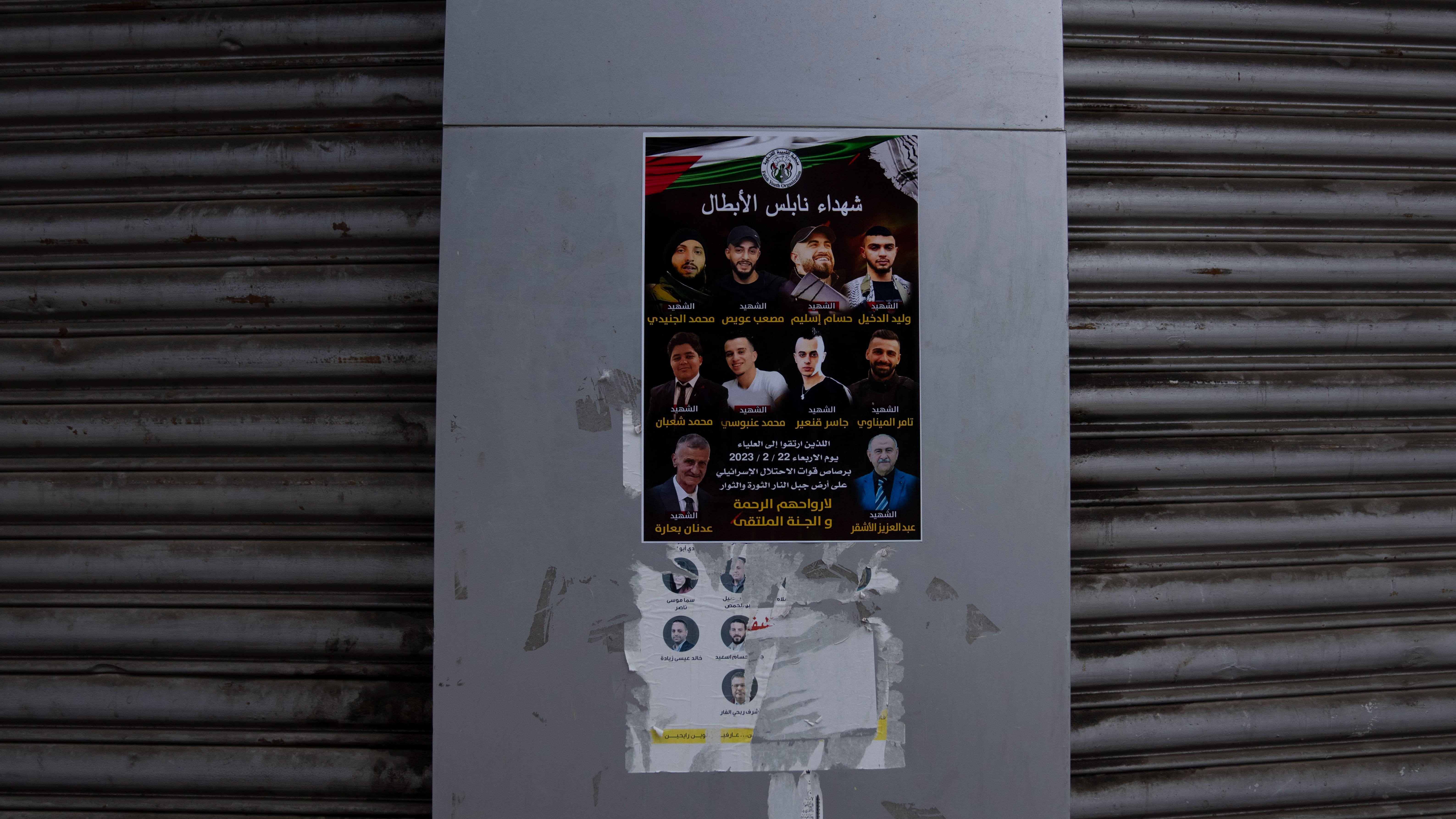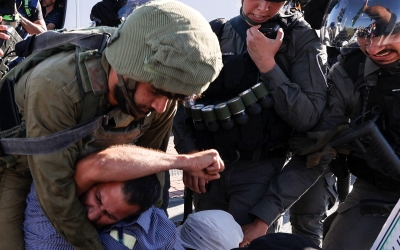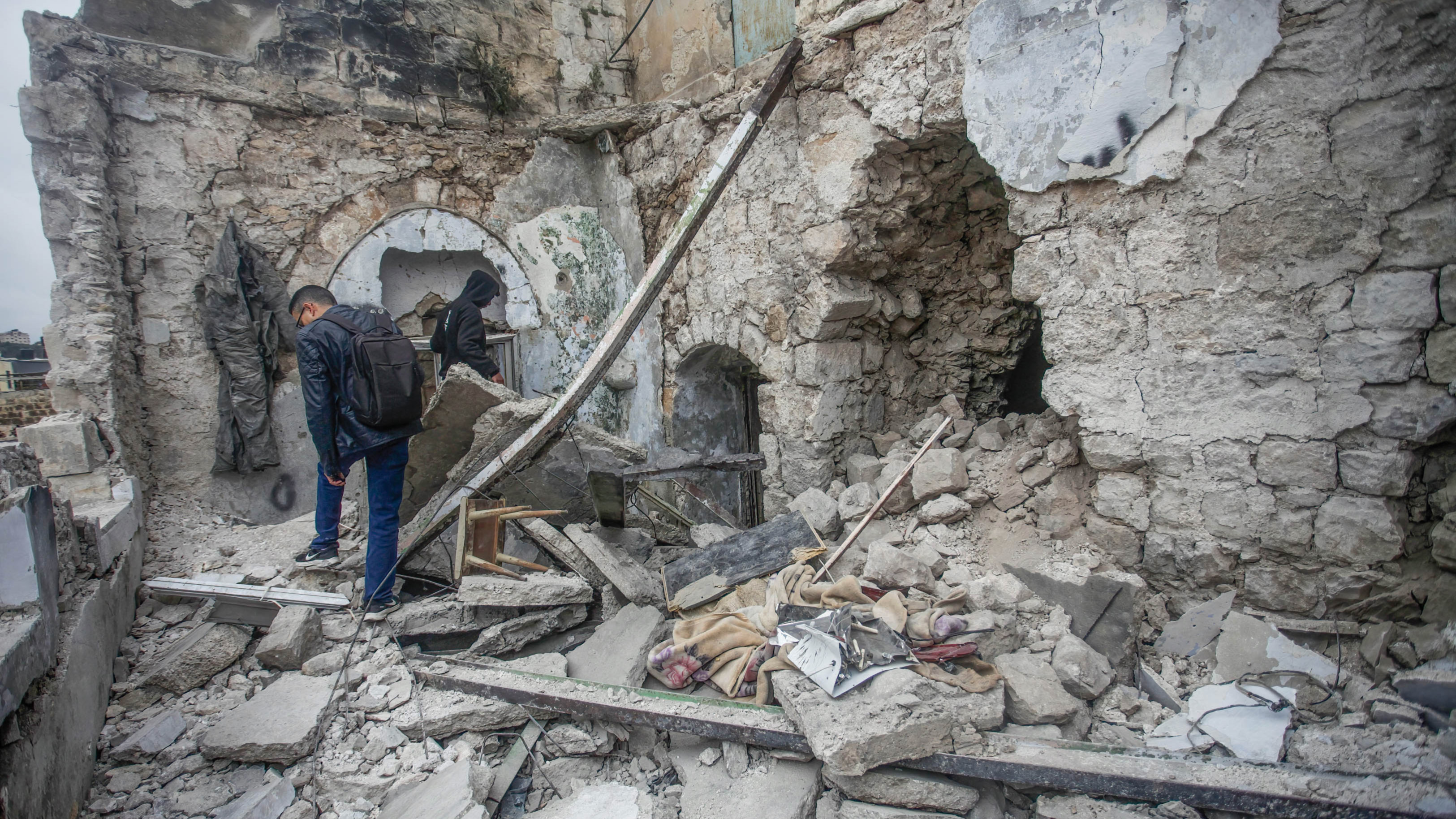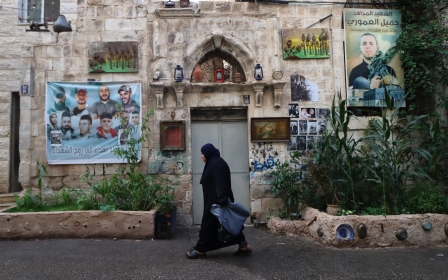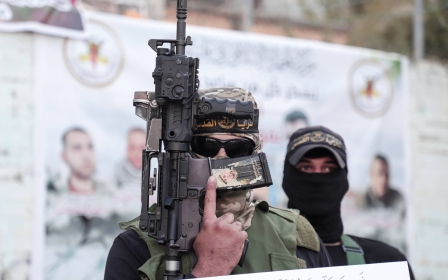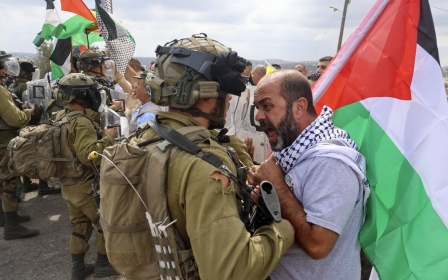How Israel's killings turned this Palestinian into a Lions' Den fighter
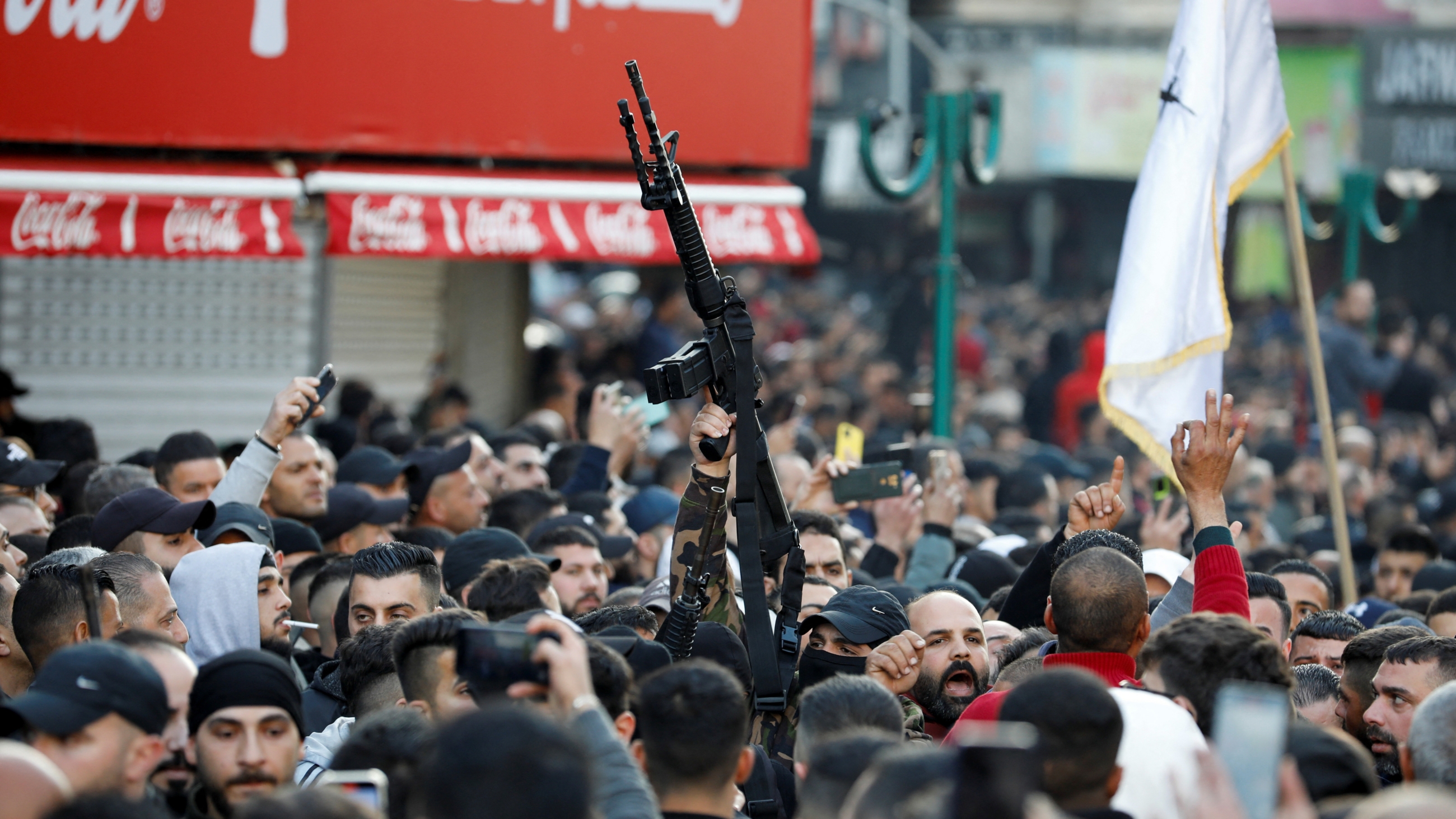
The targeted killing of three Palestinian resistance fighters in February 2022 had been on Hussam Aslim's mind for months.
Later that year in August, Israel killed popular resistance fighter Ibrahim al-Nabulsi and with that, the construction worker finally made his mind up.
“He received his last pay and quit his job. Then he bought his weapon with the money,” Aslim's mother, who preferred not to use her name, told Middle East Eye.
The 24-year-old decided to follow in the footsteps of Nabulsi and the three men killed in February - Adham Mabrouka, Ashraf Mubaslat and Mohammed al-Dakhil - who formed a cell in the occupied West Bank city of Nablus that later turned into the Lions' Den armed group.
“He knew that I wanted to celebrate his birthday on 15 September 2022," his mother said.
"So, he waited until that day and allowed me to celebrate it. Afterwards, he left the house and never came back."
On 22 February, Aslim - who had become a senior member of the Lions' Den - was himself the subject of an Israeli operation.
In a violent daylight raid in Jerusalem's Old City, he was killed along with Mohammed Abu Bakr, 23, after the building they were in was besieged for hours and struck with multiple missiles.
Another nine Palestinians were killed in the five-hour-long attack, including three elderly men and a teenager, and more than 100 were wounded.
During the raid and amidst the violent armed clashes, a recording attributed to Aslim was shared online. He is purportedly heard saying that he would fight to the end and not surrender.
"Forgive us, I love everyone, and I love my mother. We won't hand over our weapons. I'll die as a martyr. Keep carrying weapons after us," the recording said.
His mother, hearing of the recording, recalled the last time she saw her son.
“We clasped hands and walked together in the alleys of the Old City. Two days later, he called me and I told him ‘I felt something big when I held your hand and walked with you, I want this day to come back',” she said.
“He is now gone, and that day will never come back.”
Pushed to resistance
Early last year, Aslim worked in construction with his father, earning a good salary of around 10,000 shekels ($2,730) per project.
But his horror at the targeted killings of Mabrouka, Mubaslat and Dakhil on 8 February 2022 inspired him to leave all this behind and become part of the anti-occupation resistance.
Israeli soldiers, hiding in Palestinian vehicles, intercepted a car containing the three Palestinian fighters on a normal Tuesday morning in the Makhfiya neighbourhood of Nablus.
Then they stepped out, and at point-blank range sprayed the vehicle with over 80 bullets.
It was the first time in years that Israeli forces had conducted a precise, targeted killing operation in the heart of a key Palestinian Authority-administered city, which indicated a new and more aggressive strategy in the occupied territory.
It was a turning point for Aslim, who from that point on began thinking about changing the course of his life, according to his mother.
But it wasn't until 9 August 2022, when Nabulsi was killed in another raid on Nablus, that Aslim decided to join the resistance.
“Hussam always talked about Ibrahim and hung his pictures everywhere. He loved him so much he even held his photo in his pocket,” his mother said.
The story of Aslim is similar to many young men who have been inspired to pick up arms as Israel escalated its violence against Palestinians in the West Bank.
Last year was the deadliest year for Palestinians in the occupied West Bank since the Second Intifada.
Of the 220 Palestinians killed in Israeli attacks, 167 were from the West Bank and East Jerusalem. Already this year, 63 Palestinians have been killed at a rate of more than one fatality per day.
Palestinians killed 30 Israelis in 2022, and at least 13 have been killed so far this year.
Final goodbyes
As Aslim advanced through the ranks of the Lions' Den, he became a target of the Israeli army as well as PA security forces.
He was offered cars and flats by the PA, among other privileges, in exchange for giving up his arms, according to his mother.
The offers didn't sway Aslim, who was pursued for five months by the Israeli army before he was killed last month.
'I know that my son is a hero, and I am proud of him'
- Hussam Aslim's mother
Aslim’s sister, Lama, saw him minutes before his death.
As she was leaving the city earlier in the day, heading to Jenin, she decided to pay him a visit.
"I felt a pressing desire to see him," she told MEE.
"I met him and told him 'Hussam, I love you so much, take good care of yourself'. He replied saying 'Ok, trust in Allah' and I left."
On her way out, Lama spotted Israeli forces in the Old City and quickly warned her brother.
He answered with a voice note: "I am now surrounded, Lama. Take care of yourself and say hello to [my brother] Emad and [brother-in-law] Karim. Stay proud of me, I am your brother, a lion. Take care of mum and dad, I love you so much."
Once she received the message, Lama rushed back to Nablus. When she arrived, Aslim and his fellow fighter, Abu Bakr, had already been killed, and their bodies were transferred to the hospital.
“I found him in the mortuary, his body was covered in blood. I bid farewell and hugged him for so long,” she said.
At the funeral, Aslim's father, Bassam, received mourners and recalled his last meeting with his son, two weeks earlier.
“I was walking in the Old City and someone poked me in the back. I turned around and it was Hussam, wearing casual clothes,” Bassam told MEE.
“I hugged and kissed him and we spoke for around 10 minutes before he told me that he could not stay any longer and had to leave.”
Crying elsewhere at the funeral, his mother also remembered the last time she heard from him when he called her during the Israeli raid and told her he loved her.
“He asked me to pray for him a lot, then he hung up and never picked up the phone again,” she said.
“I know that my son is a hero, and I am proud of him. But I cannot stop myself from missing him."
This article is available in French on Middle East Eye French edition.
Middle East Eye propose une couverture et une analyse indépendantes et incomparables du Moyen-Orient, de l’Afrique du Nord et d’autres régions du monde. Pour en savoir plus sur la reprise de ce contenu et les frais qui s’appliquent, veuillez remplir ce formulaire [en anglais]. Pour en savoir plus sur MEE, cliquez ici [en anglais].


